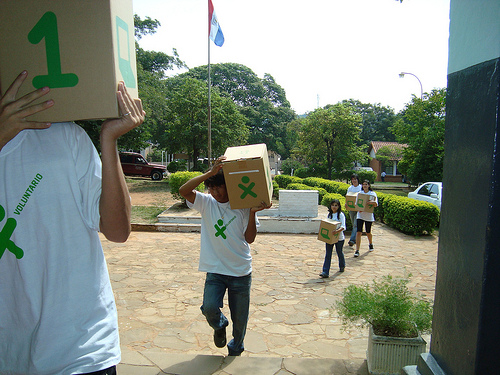Sayamindu and I have been contributing over the course of the year to a Bookserver initiative to define how digital texts are indexed, discovered, and distributed. The Open Content Alliance organized a conference yesterday and today in San Francisco to help us move forward with Bookserver development, improve the draft specification. It was an inspiring event, with a lot of good working code and interfaces to share with one another. Brewster throws a mean party, and when he announced he was hosting one last night to celebrate the launch of the Bookserver project and the Archive’s move into a beautiful new space in the Presidio, some 500 people turned up. I was pleased to run into Mary Lou, with four laptops sporting new Pixel Qi screens – low power, and yet so very hot.
I spoke about what OLPC is doing with this new specification – Sayamindu’s modified “Get Internet Archive Books” activity was the first client application to use the developing spec and beta book servers – and we spent some time brainstorming ways to improve OPDS. It’s an open group and process – all input is welcome. Continue reading



